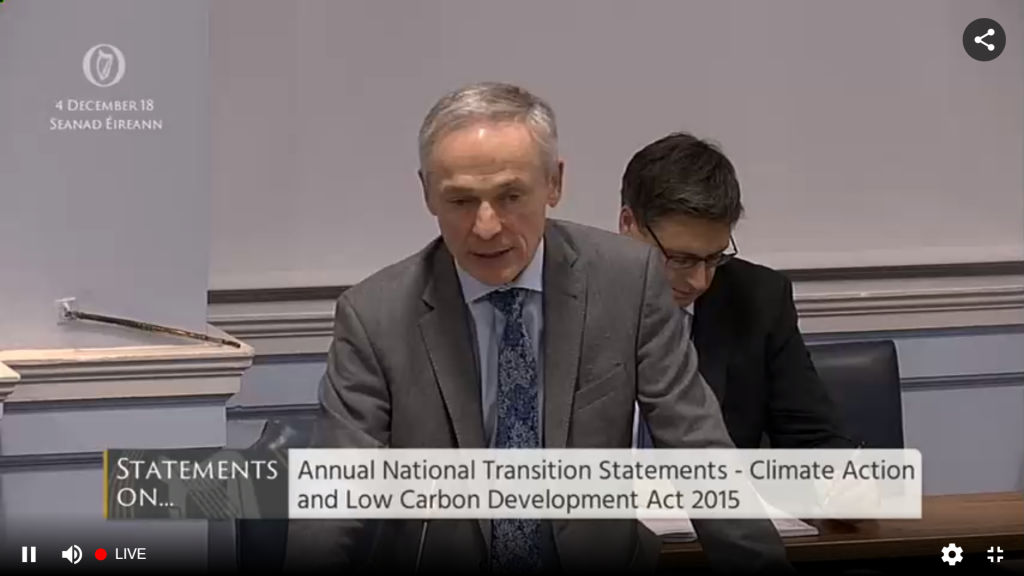Close Moneypoint now to lead on climate, Minister told

December 7th, 2018
Permanently closing down Moneypoint power station now would send a strong message that we serious about tackling climate change, the Climate Action Committee heard this week.
Speaking on Wednesday, Senator Grace O’Sullivan called on the Minister for Climate Action, Richard Bruton TD, to make the move with the coal-fired station currently out of action for over two months.
“It’s been closed for two months and no-one hardly noticed,” the Green Party Senator said.
Moneypoint is one of Ireland’s largest generating stations with a total generation capacity of 915MW, making up over one-fifth of electricity generation in 2016.
All coal used at the plant is imported, the majority coming from the controversial Cerrejon mine in Colombia, one of the largest open-cast coal mine in the world.
Earlier this week, The Green News revealed that all three coal-fired units at Moneypoint have been out of action for the past two months due to a forced outage at the Co Clare facility.
Over the past month, the electricity grid has run almost exclusively off of gas (44 per cent) and renewables (43 per cent).
The ESB, the semi-state that runs the plant, confirmed that all three units at the station, each with a capacity of 305MW, have been offline since 27 September 2018 after engineering issues came to light.
A problem with turbines emerged during planned works on two units earlier this year, the semi-state said, with the units taken offline on 13 April and 4 August respectively.
As a precaution, the third unit was taken offline on 27 September and is scheduled to come back online in early February next year. The other two units should be operational in mid-December.

Switch off the key
Mr Bruton TD said that it was “just simplistic” to close Moneypoint overnight, “switch off the key and go home”.
“It is there as a reserve,” he said and is needed until we have better interconnection in place and more renewables in the grid.
All the technology for renewables is out now there, he said, and it is for the Irish government to use it to tackle climate change, the “defining issue of this century”.
“There are challenges in every single sector that we are responsible for,” he added, with Ireland among the worst in Europe per head of pollution in both transport and household emissions.
Mr Bruton said that the National Development Plan (NDP) is a “significant statement” of the level of investment that is coming down the line to “directly confront” our emission problem.
The Green Party and several environmental groups have challenged the Plan, arguing that it has not been adequately “climate-proofed”.
Last month, Friends of the Irish Environment was granted leave to challenge the Government’s adoption of Project Ireland 2040 made up of the NDP and the National Planning Framework.
The group argues that EU obligations to assess the environmental impacts of the NDP have not been met, while Ireland’s emissions obligations were not properly incorporated into the Plan
[x_author title=”About the Author”]







